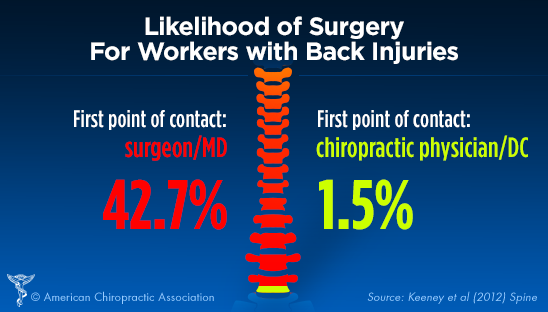The Relevance Of Nourishment In Managing Back Pain: Recommended Foods And Those To Avoid
The Relevance Of Nourishment In Managing Back Pain: Recommended Foods And Those To Avoid
Blog Article
Material Author-Livingston Jordan
When it involves managing your pain in the back, the food options you make can significantly impact exactly how you really feel each day. Visualize being able to reduce your discomfort simply by readjusting what you consume. By recognizing the function of nutrition in pain in the back monitoring and knowing which foods to integrate or stay away from, you can take aggressive actions towards a healthier and extra comfy way of life. The connection between nourishment and back wellness is much more profound than you might understand-- let's discover exactly how particular foods can either relieve or exacerbate your neck and back pain.
Significance of Nourishment in Pain In The Back
Nourishment plays a critical role in handling back pain. Your diet can dramatically affect swelling degrees and total pain degrees in your back. Consuming a well balanced diet plan abundant in nutrients like vitamins D and K, calcium, magnesium, and omega-3 fatty acids can help reduce swelling and reinforce bones, which are important for back health and wellness.
In addition, keeping a healthy weight via proper nutrition can minimize stress on your spinal column, decreasing the risk of neck and back pain.
Additionally, certain nutrients like antioxidants found in fruits and vegetables can help deal with oxidative tension and promote recovery in the body, including the back muscular tissues and spinal column.
On the other hand, consuming too much quantities of processed foods, sweet drinks, and undesirable fats can add to swelling and weight gain, worsening neck and back pain.
Foods to Consume for Back Health And Wellness
To support a healthy and balanced back, integrating nutrient-rich foods into your day-to-day meals is key. Including foods high in anti-oxidants like berries, spinach, and kale can help reduce inflammation in your back, easing pain and discomfort. austin integrative medical -3 fatty acids found in fatty fish such as salmon and mackerel have anti-inflammatory properties that can profit your back health and wellness.
Additionally, eating nuts and seeds like almonds, walnuts, and chia seeds supplies necessary nutrients like magnesium and vitamin E, which support muscular tissue function and reduce oxidative tension. Including lean proteins such as chicken, turkey, and tofu can aid in muscle mass fixing and upkeep, promoting a strong back.
Do not fail to remember to include dairy or fortified plant-based alternatives for calcium to support bone health. Last but not least, hydrate with lots of water to maintain your spine discs moisturized and operating optimally. By consisting of these nutrient-dense foods in your diet regimen, you can nourish your back and support general spine health.
Foods to Stay Clear Of for Neck And Back Pain
Opt for avoiding refined foods high in added sugars and trans fats when seeking relief from pain in the back. These sorts of foods can contribute to inflammation in the body, which may worsen neck and back pain. Say no to sugary snacks sweet, breads, and sugary drinks, as well as fast food things like burgers, fries, and fried hen that are frequently loaded with trans fats.
Additionally, avoid foods containing high levels of polished carbohydrates, such as white bread, pasta, and pastries, as they can increase blood glucose degrees and potentially get worse swelling in the body.
It's additionally smart to restrict your intake of foods high in saturated fats, like red meat and full-fat milk items, as they can contribute to swelling. Processed foods like deli meats, chips, and packaged snacks are frequently high in saturated fats and ought to be eaten in small amounts.
learn the facts here now
To conclude, focusing on your diet plan and making clever food choices can have a significant influence on taking care of pain in the back. By integrating nutrient-rich foods like berries, fatty fish, nuts, and lean healthy proteins, and avoiding processed and sweet items, you can help in reducing inflammation and assistance on the whole back health and wellness. Keep in mind, what you eat plays an essential role in how you feel, so ensure to prioritize your nourishment for a healthier back.
